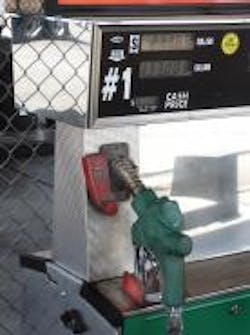MPG standards and the impact on highways
With the announcement today that cars and light trucks will be expected to achieve an average Corporate Average Fuel Economy (CAFE) of 54.5 mpg by 2025, the impact will be felt in many ways.
If less fuel is purchased, that means fewer dollars in gas taxes will be collected. The impact, of course, is that with fewer taxes collected, there will be fewer dollars available for infrastructure maintenance and improvements. That is a little publicized problem that needs to be addressed as mpg improves. Currently, CAFE requires all vehicles sold to average 27.3 mpg; that will rise to 34.1 by 2017, and then increase 5% per year through 2025. With all the fuel sold and taxes collected now at the 27.3 standard, we still can’t find a way to adequately fund our infrastructure projects. If we could, we’d already have a multi-year highway reauthorization bill.
Since the last surface transportation bill expired in 2009, there have been a series of extensions. Led by Sen. Barbara Boxer (D-CA), the Senate’s Environment and Public Works Committee unveiled a two-year proposal that would provide funding at current levels. It would provide $109 billion over two years, far more than the $74 billion expected to be generated from fuel taxes during that time.
The issue with that, though, is that the Republicans, especially in the House, are intent on not funding any project that does not have a corresponding revenue source, ie. there will be no deficit spending.
In the House, U.S. Rep. John Mica (R-FL) has proposed a six-year bill with funding pegged at projected fuel tax revenues, approximately $35 billion per year, far below what we currently need.
So what to do? While improving mpg is an admirable goal and one that I support – after all, I’m kind of tired of pumping $60 worth of gas into my car at each fill-up – it’s one that comes with consequences.
The fact is that our current revenue model for funding surface transportation projects is broke. And it’s going to be broken beyond repair if we continue on the same path in the next highway bill – relying solely on fuel taxes.
Can the problem be solved? Sure it can. Will it? I don’t see that happening anytime soon. If this country’s leadership can’t stop squabbling and come up with a plan to solve the current debt limit crisis, how do we think Republicans and Democrats can come together to create a new revenue model for surface transportation? I suspect that in two years, we’ll be sitting here having this same discussion all over again.
